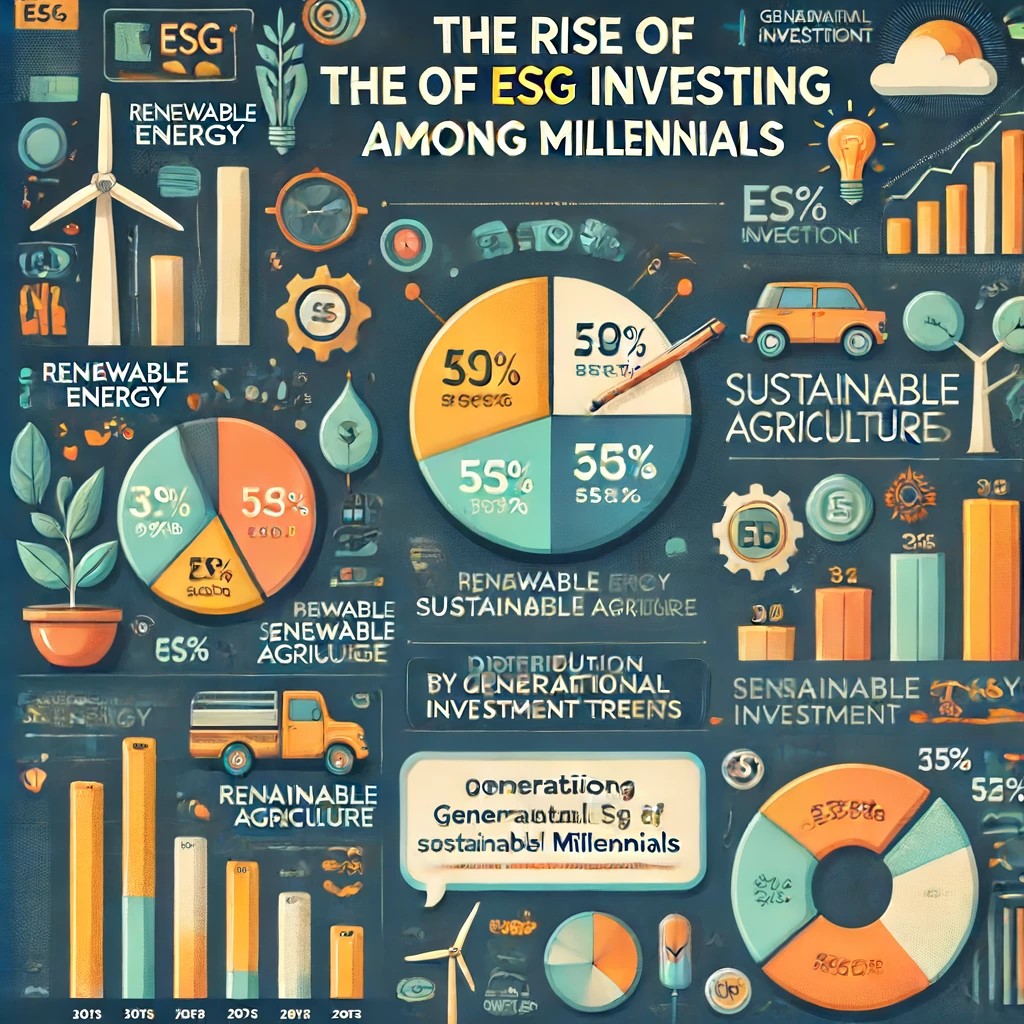Millennials, often defined as those born between 1981 and 1996, are rapidly becoming a dominant force in the global economy. As they mature into their prime earning years, their unique perspectives on technology, sustainability, and social responsibility are profoundly influencing the investment landscape. This article explores how millennials are reshaping investment strategies and what future trends might emerge from their growing financial influence.

Current Trends Influenced by Millennials
1. Tech-Savvy Investment Approaches: Millennials are the first generation to grow up with the internet and mobile technology, which has led them to favor online platforms for managing their investments. The rise of robo-advisors, online-only investment platforms, and trading apps like Robinhood are largely driven by millennial preferences. These tools not only provide easy access and lower fees but also cater to a preference for more hands-on, real-time management of investment portfolios.
2. Preference for ESG (Environmental, Social, and Governance) Investing: More than any previous generation, millennials care deeply about the environment and social issues, and this extends to their investment choices. ESG investing, which considers a company’s environmental impact, social responsibility, and governance practices, is booming, driven by demand from millennial investors who want their money to reflect their ethical concerns.
3. Increased Appetite for Alternative Investments: Millennials are more inclined than older generations to invest in alternative assets such as cryptocurrencies, peer-to-peer lending platforms, and crowdfunding projects. Their comfort with digital platforms and high-risk, high-reward strategies mark a significant shift from traditional stocks and bonds to more unconventional investments.

Financial Implications of Millennial Preferences
1. Impact on Financial Markets: Millennials' preference for ESG investments is pushing companies to change their operations to attract investment capital. This shift is encouraging more businesses to adopt sustainable practices and improve governance structures. Furthermore, the millennial penchant for tech-driven investment solutions is fostering innovation and competition among financial service providers.
2. Changing Wealth Management Industry: As millennials demand more personalized investment solutions and digital experiences, wealth management firms are adapting by offering tailored services and enhancing their digital platforms. This generation's expectations are reshaping the advisory landscape, pushing for greater transparency and alignment with personal values.

Future Predictions for Millennial Impact on Investment Strategies
1. Continued Growth in ESG Investing: As more millennials become investors, the flow of funds into ESG assets is expected to rise significantly, potentially reshaping sectors like energy, transportation, and manufacturing to align with sustainability goals.
2. Technological Innovations in Investing: The demand for tech-savvy investment options will likely lead to further innovations in AI and machine learning applications for personalized investment advice, automated trading systems, and enhanced risk management tools.
Conclusion
Millennials are not just participating in the financial markets; they are actively reshaping them. Their distinctive preferences, combined with substantial economic power, are driving significant changes in investment strategies. As this generation continues to inherit and accumulate wealth, their impact on the financial sector is expected to grow, leading to more profound changes in global investment practices and strategies.


